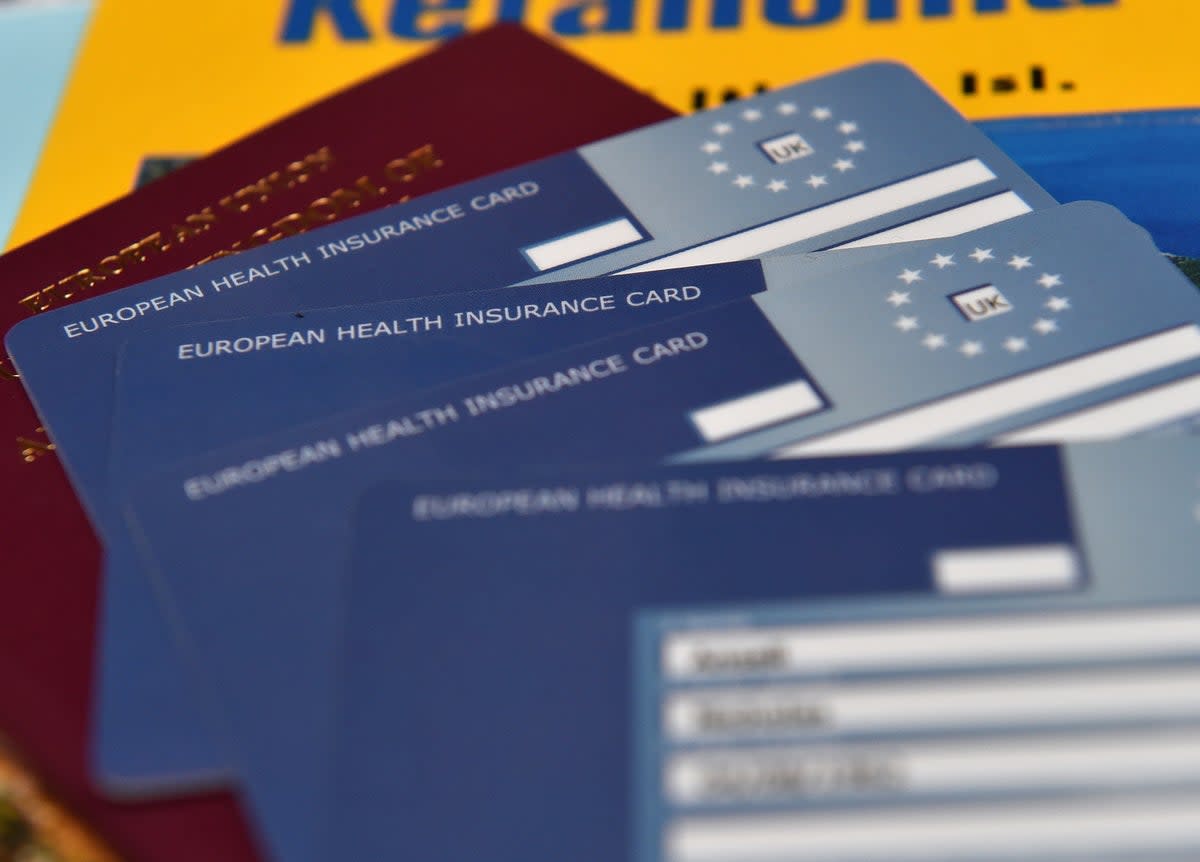Everything you need to know about the Ghic, the post-Brexit health insurance card

Since the EU referendum in 2016, there has been a great deal of uncertainty about whether the free healthcare on offer to British travellers to Europe will continue after the Brexit transition phase ends.
The free European Health Insurance Card (Ehic) is being phased out, replaced by the Global Health Insurance Card (Ghic) – which is also free. Those already holding Ehics can continue to use them as normal, as both cards entitle the holder to free or discounted medical care in EU countries and Switzerland (though stricter conditions apply for the latter). However, check your Ehic is still in date – millions are set to expire during 2023. If you don’t have an Ehic, you’ll need to apply for a Ghic.
A brief history of the Ehic
British travellers have long benefited from free or very low-cost medical treatment in some other countries – initially through reciprocal agreements and later, after the UK joined the then-EEC in 1973, with a Europe-wide agreement.
For decades the document for travellers was known as the E111, and was available from social-security offices.
In 2004, the European Union introduced the Ehic as a card demonstrating entitlement to medical care on the same basis as local people. It is available free to EU citizens, including (after Brexit) those living in the UK.
What exactly has changed since Brexit?
Perhaps oddly: British travellers have lost reciprocity with three non-EU members – Norway, Iceland, and Liechtenstein – but not with the EU27 or Switzerland. The UK and European Union will continue to offer “benefits in kind” to a citizen from the other side if those benefits “become necessary on medical grounds during their stay”. In other words: need health care? You’ve got it.
It’s important not to equate entitlement with possession of a valid European Health Insurance Card. The Ehic is simply an easy way to demonstrate that you qualify for treatment.
How do I get one?
Do not apply if you have a valid Ehic.
You can apply for a UK Global Health Insurance Card (Ghic) on the NHS portal previously used for Ehic applications or by calling on 0300 330 1350. The card is free. Do not use any third-party sites: they are likely to charge a fee.
Can I still apply for an Ehic renewal?
You can try and apply to renew it – but you’ll be redirected to apply for a Ghic, as that has now replaced the Ehics.
What do I if I have no valid card?
The EU says: “If the need arises, you will still receive the treatment necessary to enable you to continue your holiday without having to return home for treatment.”
If you have an existing Ehic, it will continue to be valid until its expiry date. If yours has run out, or you never had one, you are still entitled to care.
For treatment abroad, you are required to apply for a provisional replacement certificate (PRC). This is confirmation by the NHS that you are entitled to health care.
To get one, you, or a companion or family member, need to call NHS Overseas Healthcare Services on +44 191 218 1999 during working hours (Monday to Friday, 8am-6pm).
You must have your National Insurance number and the name of the hospital or other medical facility that is currently treating you. The certificate will then be emailed (or, quaintly, faxed) to the clinicians.
What treatment is covered?
All emergency care, including issues arising from pregnancy – but not if you have gone abroad specifically to give birth.
In addition, pre-arranged medical treatment for specific conditions – notably kidney dialysis, oxygen therapy and chemotherapy – is covered, as before.
Note that only the EU27 countries and Switzerland are covered – ie not Norway, Iceland, and Liechtenstein, which are members of the Schengen Area but not the European Union.
Does the agreement cover medical repatriation?
No. It is solely for easier access to medical treatment. There is no provision for taking you home free of charge if you fall seriously ill or suffer a serious accident. Only travel insurance will cover that.
One additional benefit of the decision to continue reciprocal health care is that travel insurance premiums are unlikely to rise significantly.
Is Ghic an alternative to travel insurance?
Travel insurance offers far more benefits besides local health care, including cover for cancellations, loss or theft and, in extreme cases, medical evacuation. The government warns: “Ehic and Ghic do not replace travel insurance.”
Abta, the travel association, goes even further, warning: “Taking out travel insurance is crucial when you book your holiday, whether it’s a domestic break or overseas.”
But older travellers, particularly those with pre-existing medical conditions, might rationally decide not to insure for journeys to locations covered by the Ghic – if they are prepared to self-insure for other risks. Note that medical repatriation by air usually costs tens of thousands of pounds.
